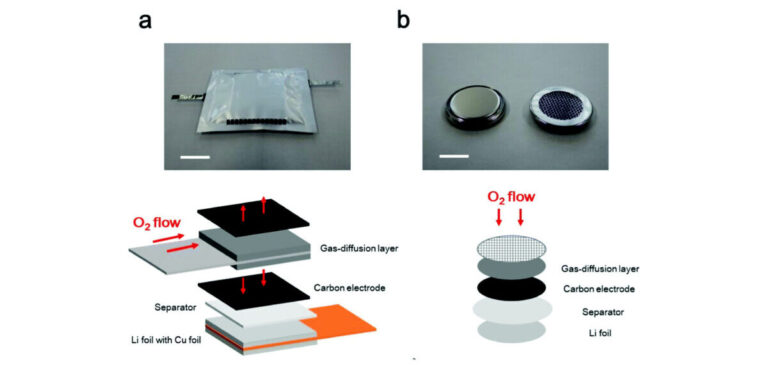Researchers at the Japanese National Institute for Materials Science (NIMS), in conjunction with technology investment firm SoftBank, have developed a lithium-air battery with an energy density of over 500Wh/kg. The research team also confirmed that the battery can be charged and discharged at room temperature.
Lithium-air batteries have a number of potential advantages over current technology, they are lightweight and high capacity, with theoretical energy densities several times that of currently available lithium-ion batteries. NIMS has been carrying out basic research on lithium-air batteries with support from the ALCA-SPRING program (Advanced Low Carbon Technology Research and Development Program, Specially Promoted Research for Innovative Next Generation Batteries). This program has been funded by the Japan Science and Technology Agency (JST) with the goal of accelerating large-capacity rechargeable battery R&D.
In 2018, NIMS and SoftBank co-founded an Advanced Technologies Development Center to conduct research with the goal of putting lithium-air batteries into practical use in cell phone base stations, the Internet of Things (IoT), HAPS (high altitude platform stations) and other technologies. Despite their very high theoretical energy densities, only a small number of lithium-air batteries with high energy densities have actually been fabricated and evaluated to date.
The research team had previously developed new battery materials that significantly increase the performance of lithium-air batteries in ALCA-SPRING-supported research. The team then developed a technique to fabricate high-energy-density lithium-air using these new materials and fabrication techniques, and achieved an energy density of over 500 Wh/kg.
The team says it is currently developing higher-performance battery materials and plans to integrate them into the newly developed lithium-air battery with the aim of greatly increasing the battery’s cycle life.


